For some, the idea that China could one day move away from the consumption of beef, pork, poultry and other animal meats may seem like a pipe dream. There’s good reason for this, according to statistics from the UN Food and Agriculture Organization and the Organization for Economic Co-operation and Development, China consumed nearly 50% of the world’s pork in 2019. In 2016, the average Chinese person ate 63 kilograms of meat per year.
Despite lagging behind over 10 countries, including the United States, Israel and Argentina, in per capita meat consumption, China’s growing appetite for animal flesh has triggered alarm bells. A tacit acknowledgment of this trend came from the Central Government in Beijing in 2016, when a plan was outlined to cut citizens’ meat consumption by a whopping 50%.
The positive ramifications of such a dietary shift would be massive, not just for the personal health of Chinese people, but also for the planet: If the target is met, China’s animal agriculture sector would see a 1-billion-metric-ton reduction of carbon dioxide equivalent emissions by 2030.
But how is such a feat accomplished in meat-loving China? The answer, it turns out, may lay with plant-based ‘meats,’ and an industry is rising both domestically and abroad to help China achieve this goal.
Four years ago, California-based Impossible Foods debuted the now-famous Impossible Burger, a hamburger patty made with a plant-based imitation beef. The product received heaps of praise and set itself apart from the veggie burgers of yesteryear by replicating the taste, texture and cooking experience of an actual beef patty.
“When we bring these products to the market, and with the Impossible Burger which we launched in 2016, the experience that chefs and consumers have is the experience of meat – but in a better way and in a much more sustainable way,” Nick Halla, senior vice president of Impossible Foods’ international division, tells us during a call from his Hong Kong office. “It’s not the veggie burger experience.”

An Impossible Burger. Image via Impossible Foods
Evidence of Impossible Food’s success is found not only in the high-end burger joints that use their plant-based patties – such as gourmet burger chain Umami Burger, but also in the fast food industry. In 2019, Burger King in the US rolled out the Impossible Whopper, a version of its signature burger that utilizes Impossible Burger patties instead of beef. Stating that the collaboration was a hit would be a colossal understatement: A positive reception after launching in 59 Burger King locations in St. Louis on April 1 led the company to roll out the Impossible Whopper nationwide.
“[The Impossible Whopper has] become one of the most successful product launches in brand history, leading to outstanding comparable sales of positive 5% this past quarter,” said a Burger King spokesperson late last year, according to New York Post.
As a company, it’s fair to say that Impossible Foods is about more than just burgers. There’s an ideology of sorts behind the operation, a mission to forward global food security, reduce the environmental impact of food production and improve the health of consumers. Part of this mission requires Impossible Foods to look beyond the North American market at other meat-loving regions in need of disruption via plant-based alternatives – with China high on the list.
“We opened our first facility in Oakland at the end of 2017, six months later we launched in Hong Kong,” says Halla. “As a food company, when we’re [going from] several hundred restaurants in the US to launching in the international market that quickly, [it’s] very unique.”
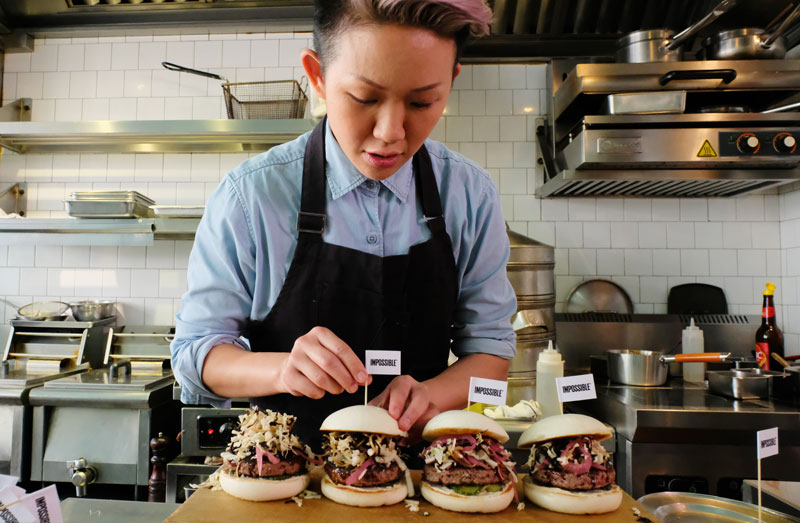
Impossible Bao at Little Bao in Hong Kong. Image via Impossible Foods
Since arriving in Hong Kong in 2018, Impossible Foods now has products in more than 500 restaurants across Hong Kong, Macao and Singapore, although they’ve yet to enter the mainland market.
“We don’t have any restaurants in the mainland yet, so one of our big initiatives is to get our plans, strategies and partners together to do the Chinese mainland the right way,” says Halla. “So, we are putting a lot of effort into that because it is critical.”
When Impossible Foods does arrive on the Chinese mainland, though, they will be entering an increasingly competitive market, with over half a dozen Chinese plant-based meat companies and startups already vying for Chinese stomach space. A number of American competitors have also penetrated into the market on the Chinese mainland: Last month, Starbucks joined forces in China with plant-based innovators Beyond Meat and Oatly to launch the new ‘Starbucks GOOD GOOD’ movement in its stores, encouraging Chinese customers to explore new dietary options that are good for the planet.
China’s plant-based meat industry first popped up on our radar in August 2019, when media reports emerged that Beijing Technology and Business University had teamed up with Shenzhen-based alternative meat brand Starfield to release a variety of moon cakes filled with vegan-friendly meat made of bean protein.
“Buddhists have been making mock meat products way before anyone else was doing it, centuries actually”
The ethical moon cakes were big news, receiving coverage both domestically and overseas, but a food-focused Chinese person will tell you bluntly that China’s production of mock meats goes back much, much further.
For centuries, religious people living in China have chosen vegan and vegetarian diets. In a May 2019 article in China Daily, writer Zhang Zhouxiang notes that there are records of monks eating tofu-based meats as early as the Tang Dynasty (618-907 AD).
In the Song Dynasty, tofu was used to replicate fish while shrimp was replicated using konjac or elephant foot taro, according to Zhou Qiyu, senior marketing manager at Shenzhen-based Whole Perfect Food, as cited in South China Morning Post. In Chinese vegetarian restaurants and eateries located near Buddhist sites, this practice has largely continued till the present day.
“What China had and still has is a large Buddhist population, who are still the main group of vegetarians in the country. Buddhists have been making mock meat products way before anyone else was doing it, centuries actually,” says Lindsey Fine, a Shenzhen-based foodie and vegan blogger who our readers may also know as ‘Veggie Mama.’

Veggie Mama's vegan Korean-style maple sesame wings made with meat substitute mian jin. Image via Lindsey Fine.
But China’s rising array of Impossible-inspired plant-based meat producers are looking to move beyond niche markets, such as eaters of conscious and religious individuals, and take their product to the mainstream. To achieve this goal, many China-based companies are taking a very similar approach as their American counterparts.
In the US, companies like Impossible Foods and Beyond Meat have worked to move plant-based meats to the masses. A decade ago, the only people buying frozen veggie burgers at the supermarket were vegans and vegetarians, but with the advent of hyper-realistic imitation meats, plant-based burgers have found a home on the grills of carnivorous folk too.
Similarly, China’s alternative meat companies are striving to ensure their products are more realistic than traditional Buddhist imitation meats and delicious enough to find fans among carnivores.
“When you look at fake meat in the Buddhist sense, you are not trying to be the same as the meats you grew up with. But what Beyond and Impossible have done is taken an iconic American product – the hamburger – and allowed you to eat it vegetarian in as close of sense as possible,” says Franklin Yao, an entrepreneur and the founder and CEO of Shanghai-based Youkuai, a plant-based meat supplier that produces Z-Rou, a plant-based imitation pork. “And this is the same thing we’re doing with ground pork. What we want you to do is be able to enjoy the dishes that your mother or grandmother made, or the spaghetti Bolognese that you’d go out to eat in a restaurant, in a better way. And I think that’s really the difference between where we were before and where we are now.”

Z-Rou, a plant-based imitation pork made in Shanghai by Youkuai. Image via Youkuai
Toronto-born Yao, like many before him, found his way to a plant-based diet after getting into meditation and studying Buddhist philosophies, as well as educating himself on the impact of the animal agriculture industry.
“I got to a point where I wanted to use the resources that I had acquired to do something good, and to do something good that is proudly from Shanghai and from China,” says Yao, who has lived in Shanghai for 15 years and previously attended Yale in the US. “I was eating so much Beyond Meat in the US and I realized that someone is going to do this for China, but with ground pork, to recreate dishes like xiaolongbao. And I figured it might as well be me.”
Yao has no illusions that his personal journey to a plant-based life is for everyone. Quite the contrary, in fact: Yao understands that a widespread dietary revolution can only come about if plant-based edibles taste as good as real meat. When we ask him why people should consider switching to plant-based meats, he doesn’t rattle off health reasons or environmental stats, instead he passionately lists classic Chinese dishes that he believes taste delicious when made with Z-Rou, which officially launched in December of last year.
“The right way to [encourage dietary change] is not to be so extreme and tell people you have to eat plant-based from now on,” Youkuai CFO Liqin Lu tells us. “It’s not about convincing them to make the switch, but telling them that plant-based meat is also yummy and has protein and health benefits. Then this becomes a new category in your diet.”

Stuffed mushrooms made with Z-Rou. Image via Youkuai
Other China-based startups, such as Starfield and Zhenmeat, are also working hard to produce realistic and tasty plant-based meat. Zhenmeat is currently producing a pea protein-based mincemeat that can be used to make dumplings and meatballs, and is even planning to create bones for their products via 3D printing, according to Quartz.
Starfield now offers frozen plant-based mincemeat, meatballs and patties. All three of the company’s current products are beef-inspired, but are not intended to taste the exact same as bovine protein.
“We want to create something that is really, really tasty, which does not necessarily mean that it resembles beef or pork,” says Liu Shuman, the R&D director at Starfield. “We’re just creating something that is really delicious.”
According to Liu, Starfield is currently developing a plant-based meat sauce for instant noodles and an imitation meat filling for the rice dumplings (zongzi) traditionally served during Dragon Boat Festival. The company is also in the very early developmental stages of creating a product that is similar to chicken.
“What China’s doing now, with this announcement of trying to reduce meat by 50%, you just have to respect that – that’s a leadership position”
The benefits of cutting back on consumption of animal meat are not lost on China’s leadership, with Beijing calling for a 50% reduction in China’s meat consumption in the Chinese Dietary Guidelines released in 2016. The average Chinese person was eating 63 kilograms of meat per year when the guidelines were released, according to the Guardian, with individual consumption expected to grow to over 90 kilograms per year by 2030. If followed, the national dietary strategy could counter this trend and reduce consumption to 14-27 kilograms per person per year.
The policy initiative was hailed by environmental groups and Hollywood celebrities, including celebrated director James Cameron, as a way to curb greenhouse gas emissions and combat global climate change.
“The number one thing that you can do is to just stop eating – or cut down on – meat and dairy. Meat and dairy are not good for your body and they’re not good for the environment,” said Cameron in a WildAid video released after China’s pledge to lower animal meat consumption. “What China’s doing now, with this announcement of trying to reduce meat by 50%, you just have to respect that – that’s a leadership position.”
At over 27.5% of worldwide carbon emissions in 2018, China is by far the world’s largest carbon emitter, with the US in a distant second with 14.8%. It’s not entirely clear how much CO2 animal agriculture contributes to the country’s emission totals, but it’s unquestionably a considerable amount. When the Chinese government last released official data back in 2005, it showed that the livestock industry contributed to more than 50% of the country’s total agricultural emissions.
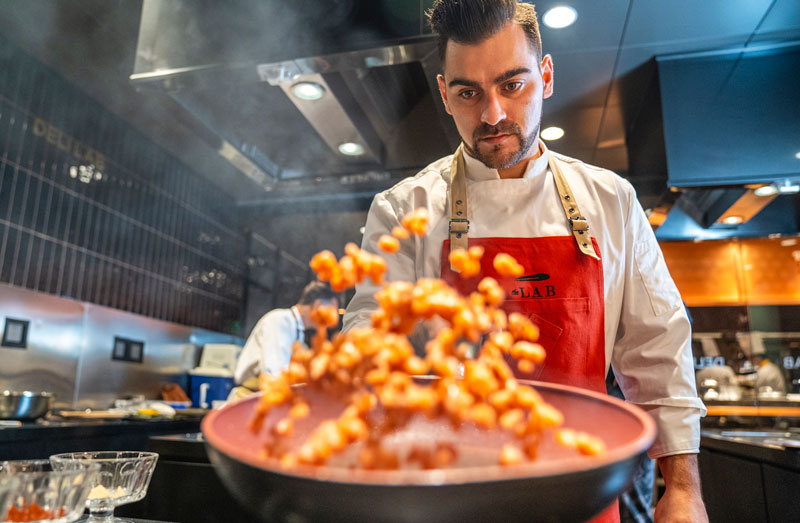
Cooking with Z-Rou. Image via Youkuai
A reduction in animal meat consumption for China’s citizens could have a massive impact on not just the country’s emissions, but global CO2 levels. For one, the downsizing of China’s livestock numbers would mean less demand for grains to feed its herds, sounders and flocks. According to a 2018 article in Smithsonian Magazine, the PRC imports more than 60% of the global supply of soybeans each year for feed, which has caused countries like Brazil and Paraguay to clear forests for farmland – driving up greenhouse gas emissions even higher.
Climate aside, reducing meat intake and switching to alternative proteins will help China to ensure its food security – the importance of which has been highlighted in the 21 months since the African swine fever (AFS) was first discovered in China in August of 2018. The disease outbreak among the nation’s pig population resulted in China’s pork output hitting a 16-year low in 2019, according to Reuters. Of course, AFS also resulted in higher pork prices, a spike in meat imports and a rise in inflation.
“Nationwide imports of pork, beef and poultry have all increased to supplement the tight supply of local pork,” Bai Xuejing from the Guangdong Imported Food Association tells us. “Of these, pork imports for the whole of 2019 were more than 2 million tons, an increase of 75% over 2018, while beef imports increased by 1.7 million tons, an increase of 59.7% year-on-year.”
On a more micro level, the personal health of China’s population will also benefit from reduced consumption of animal protein – particularly red meats. Individuals with a high intake of red meats, which include beef, pork and lamb, are more likely to suffer from health issues such as cancer, diabetes and heart disease, according to Frank Hu, the chair of the Department of Nutrition at Harvard T.H. Chan School of Public Health. To put this in perspective, China has the highest number of diabetics in the world, according to 2019 data published by Statista.

A Z-Rou burger. Image via Youkuai
A big part in achieving Beijing’s goal of drastically reducing national meat consumption may hinge upon the Chinese population’s ability to switch to plant-based meats and other less-harmful sources of protein. The success of plant-based meats in the wider Chinese market will certainly rely on how accurately companies are able to replicate the experience of eating pork and other red meats, although education and advocacy will also play an important role.
“In terms of eating responsibly, it’s only through education [that people will change], it’s only through learning more. The more educated about this topic you are, the less animal protein you will eat and the more you are going to eat plants instead,” says Yao. “It’s about getting people to learn more about the food choices they make and how that affects their personal health and the health of the globe and how animals are treated.
“When we do eat meat, we’re going to really enjoy it – because it is the exception, it’s not eating mindlessly. I think it’s about not eating mindlessly and about eating with education.”
Fine, who previously operated a vegetarian restaurant in Shanghai, agrees, telling That’s that governments have a significant role to play in educating their citizens about the importance of cutting back on meat consumption.
“I think governments will need to help to promote a plant-based diet with campaigns, special funding for plant-based companies, as well as educating people about the urgency of the situation,” says Fine.

Gaga dishes made with Starfield products. Image via Starfield
Arguably the biggest hurdle to the widespread adoption of plant-based meats is that they are expensive and priced considerably higher than animal products. This is expected to change, though, as more competition in the plant-based meat industry and increased production will likely drive down the costs.
“A lot of money has been poured into research and development and that’s why plant-based meat products are still more expensive than animal meat products,” says Lu. “But long-term, as this whole industry scales up with more demand and more companies coming into this space creating healthy competition, I think it is a no-brainer that prices will come down.”
Starfield’s Liu agrees, telling That’s that as production increases, the costs attributed to R&D will decrease for each product. Although, she does note that some producers may keep their products expensive to ensure consumers don’t view alternative meats as a cheap substitute for real meat.
“Some companies may price at a higher level because they want consumers to think their products are high quality,” says Liu.

Impossible Bao. Image via Impossible Foods
Despite the fact that plant-based meat trade is still in its infancy in China, the industry’s major players are optimistic about the future and confident that dietary change is in the air.
Many restaurants on the Chinese mainland have started to show considerable interest in plant-based meat products. According to Liu, Starfield has partnered with Hong Li Cun, a restaurant chain with 160 locations in Guangzhou and Shenzhen, to release a version of Cantonese cuisine’s famed changfen that uses its plant-based mince. Papa John’s Pizza has also shown interest in Starfield’s products, with 144 of the American chain’s China locations debuting a pizza using the Shenzhen-based company’s plant-based meats last month.
When we ask Halla his assessment of the awareness in China of Impossible Foods products, he matter-of-factly tells us, “The interest [in the Chinese mainland] is through the roof,” adding that the company handed out a whopping 40,000 samples at the China International Import Expo in Shanghai in November.
Additional reporting by Ryan Gandolfo.
[Cover image via Felix Chen/That’s]
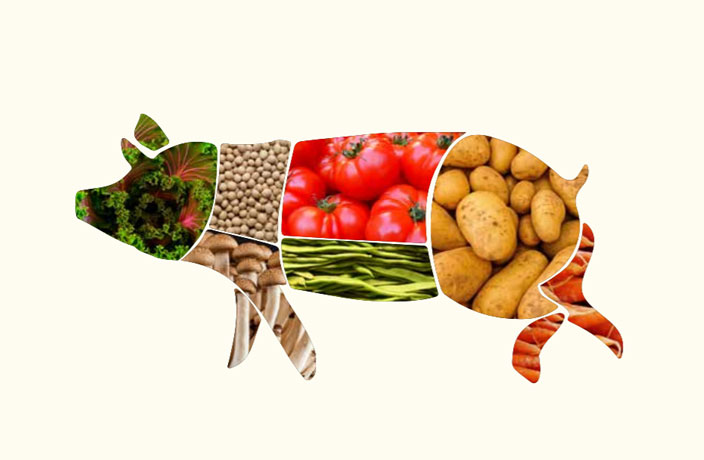




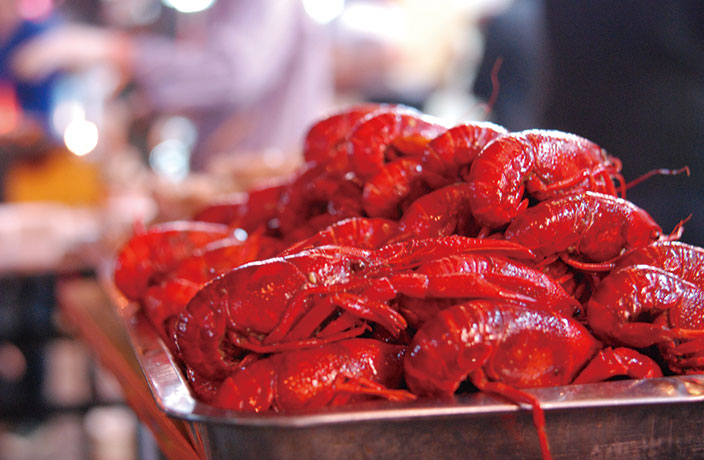
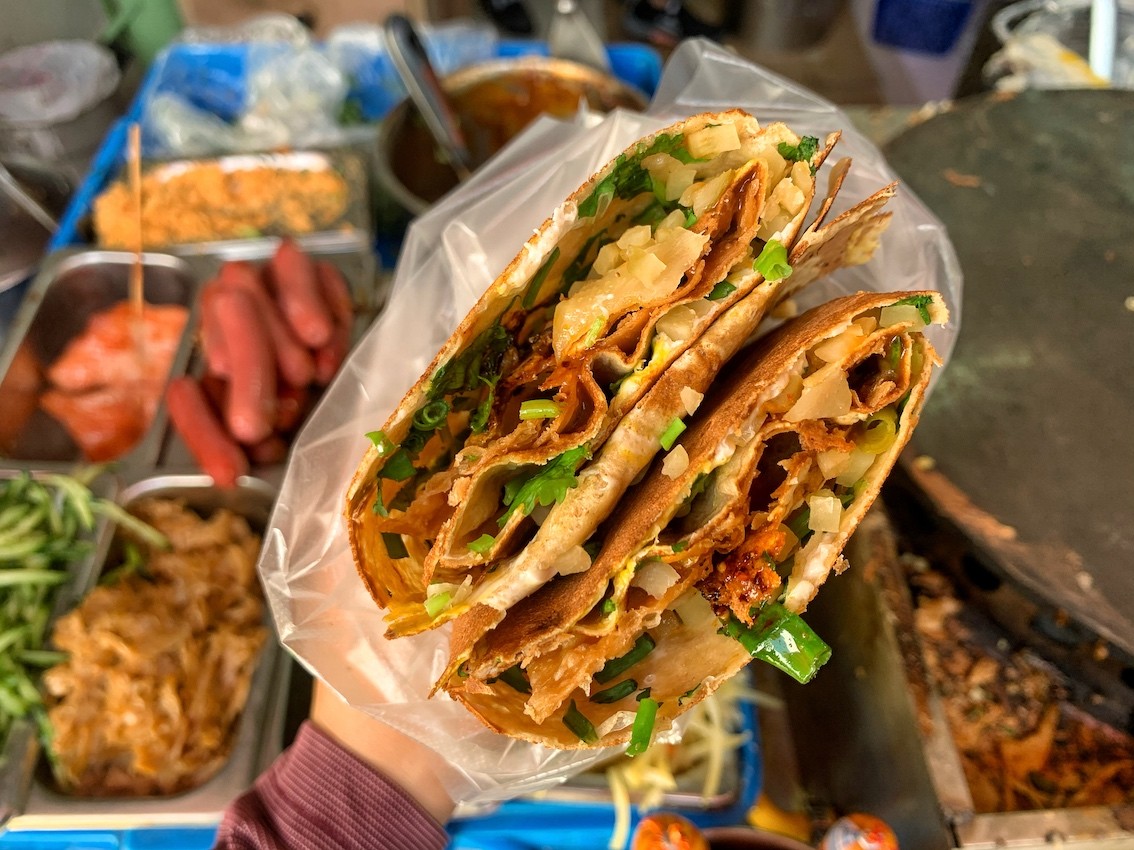















0 User Comments